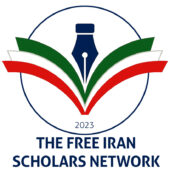by Kazem Kazerounian, Dean and Professor
Hartford Courant, June 23, 2024 at 5:00 a.m.
With the recent ongoing conflicts between Israel and Iran, Middle East is facing major regional conflict, humanitarian crises, and a long overdue peace. Amidst this complex landscape, the United States stands at a crossroads, with its policies and engagements scrutinized under the global microscope. This moment in history calls for more than the usual diplomacy; it demands a reimagined approach, a bold vision that transcends traditional boundaries and paves the way for sustainable peace. Such a vision requires the United States to redefine its engagement in the Middle East. Through innovative strategies and a commitment to genuine collaboration, the U.S. can play a pivotal role in ushering in an era of peace and stability. But to achieve this, we must first confront the hard truths, challenge the status quo, and embrace the possibilities of what could be.
Numerous esteemed academics from a wide array of disciplines in American universities have pointed out that the first truth is the failure of endless negotiations, partial sanctions, and attempts to appease Tehran’s regime. These efforts fail to stabilize the region or meet the democratic aspirations of the Iranian populace. Such calls for change have gained momentum since 2022, in multiple joint letters to the President, supported by over 4,400 faculty and professors. There emerges a unified call for change that highlights the inadequacy of current U.S. policies.
The second truth speaks to the Iranians’ pursuit of a non-nuclear secular republic, amplified by widespread protests and massive boycotts of the March parliamentary elections. The rejection of the regime is even more evident with the ongoing nationwide campaign to boycott the June presidential election, following the sudden death of Ebrahim Raisi in May of 2024. Both events manifest a profound demand for regime change in Tehran. Iranians call for change aligns with American ideals of liberty and self-governance, reminding us of historical instances where solidarity facilitated substantial change in other parts of the world. Yet, the longstanding strategy of appeasing Tehran has proven fruitless, failing to inspire any meaningful reform or curb its disruptive actions abroad. A shift in strategy is thus imperative, one that adopts a firm stance against oppression, mirroring the global opposition that ended the apartheid regime in South Africa. This starts with the U.S. ending its appeasement of Tehran in favor of a more assertive approach, leveraging political and economic sanctions to foster genuine change. Aiming for a stable and prosperous Middle East, where Iran is a non-nuclear and secular republic, is not just a dream but an achievable objective. By rallying allies to politically and economically isolate Tehran’s regime and intensify sanctions against those guilty of human rights abuses, the U.S. can significantly empower the Iranian people towards self-determination and achieving such an objective.
The third truth, highlighted by the academic call to action, is more than a mere expression of concern; it’s a compelling demand for urgent change, highlighting a broad consensus on the need for a transformative approach in the Middle East. Tehran’s interference, through groups like Hamas, Hezbollah, and the Houthis, presents significant hurdles for regional actors seeking a peaceful Middle East. Through proxy wars, Tehran diverts crucial attention from secular groups like Fatah, whose primary objectives, within the Palestinian Authority in the West Bank, are to establish a sovereign state and improve the welfare of Palestinian people. Tehran’s interference through Hamas undermines Fatah’s influence, both among Palestinians and on the international stage. It is for this reason Tehran’s regime has earned the title of “head of the snake” domestically and regionally.
This moment particularly presents a pivotal opportunity for the people of Iran, Palestine, and Israel—a chance they rightly deserve. The U.S. must acknowledge the urgency of supporting the call for change in Iran. Regionally, integrating the pursuit of a two-state solution is crucial, and addressing the Palestinian quest for nationhood and Israel’s security. This strategy forms the foundation for comprehensive peace, echoing the collective yearning for dignity, security, and prosperity.
The academic consensus not only points to a failure in quelling Middle East instability but also in acknowledging Iranians’ plea for democracy. Inspired by historical precedents like the dismantling of the apartheid regime in South Africa through determined pressure and decisive policy, it is evident that the U.S. can embark on a new course—one that champions the democratic aspiration of Iranians and strives for a peaceful Middle East.
